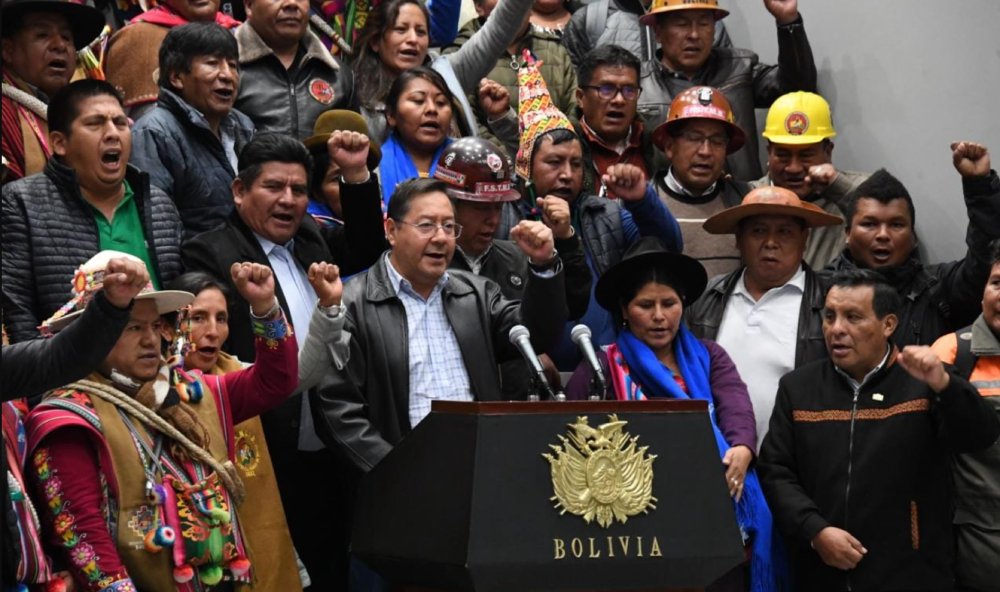In December 2024, Bolivians will head to the polls to make decisions of all kinds, according to recent announcements. We will have to choose whether Evo Morales would run as a candidate in 2025, according to President Luis Arce’s proposal announced on August 6th. We will also be asked whether the Supreme Electoral Tribunal (TSE) should follow the latest population and housing census and change the current distribution of deputies per department based on the number of inhabitants. Lastly, we will be asked to vote yes or no on the suspension of the fuel price freeze. As if this weren’t enough, last Tuesday, the TSE announced that judicial elections will be held on December 1st of this year.
But who is really interested in deciding on these issues? Very few, in reality. This can be explained by the simple fact that these matters are already enshrined in the current Political Constitution of the Plurinational State (CPEP), and there is no need for any consultation. The issue of reelection is already clear: there can be no more than one consecutive reelection, and those who violate this mandate should face penalties. The same applies to the distribution of seats by department, and there’s no need to even mention the president’s exclusive power to make decisions on economic policy.
In fact, Bolivians have already resolved all these issues in 2009, when we approved by majority in a referendum the Magna Carta that was debated in the city of Sucre, then drafted in the city of Oruro, and finally agreed upon in the National Congress. What remains is its reasonable and rigorous application.
Analyzing case by case, the judicial elections do not generate much expectation because people are convinced that, no matter who wins, justice will not become more competent, faster, or more honest, but rather the opposite. On the other hand, if the option to prevent reelection wins, Morales will be barred from running for a new term, but in reality, not much progress will have been made since, given the weak state of the opposition, it is unlikely that in the next presidential elections, anyone other than a candidate from the Movement for Socialism (MAS) will win. Whether they elect someone younger or older, more educated or more uncivilized, the result will be the same: the continuation of Evo-ism without Evo.
The same goes for the possible consultation regarding the lifting of the fuel subsidy. Whatever option wins, the situation will remain the same as we do not have a robust productive apparatus that generates foreign exchange through exports to replace the declining production of gas and oil.
Finally, on the issue of redistribution of seats by department, regardless of the verdict at the polls, the government’s logic of weakening or nullifying the power of the regions will continue.
In summary, all the proposed consultations or elections do not matter to the people but to the political elites. The factions aligned with Luis Arce (the Arcistas) and Evo Morales (the Evistas) want the citizens, with their votes, to resolve what they themselves cannot or do not want to resolve. It is true that all these issues dominate newspaper headlines today, and politics seems to revolve around these discussion points; however, this is not the reality. People feel that all these issues are matters for the politicians but not for them, not for the common folk who see their purchasing power diminish day by day.
Today, there is a double polarization in our country. The first involves the political elites of MAS and their internal struggle, which has already caused a political and economic collapse of significant proportions. The second, less noticeable, is the one between the people and MAS. Politics in Bolivia lives in parallel realities, with different priorities and agendas.
MAS believes it is acting correctly because, so far, it has not found a competitive opposition party. It continues to squander its political capital as if it were eternal. It either doesn’t realize or doesn’t want to realize the message from October 2019: the people, even without direction and political leadership, can take to the streets to oust a bad government from power, and for this, they do not need elections, consultations, or referendums—only their power in the streets.













